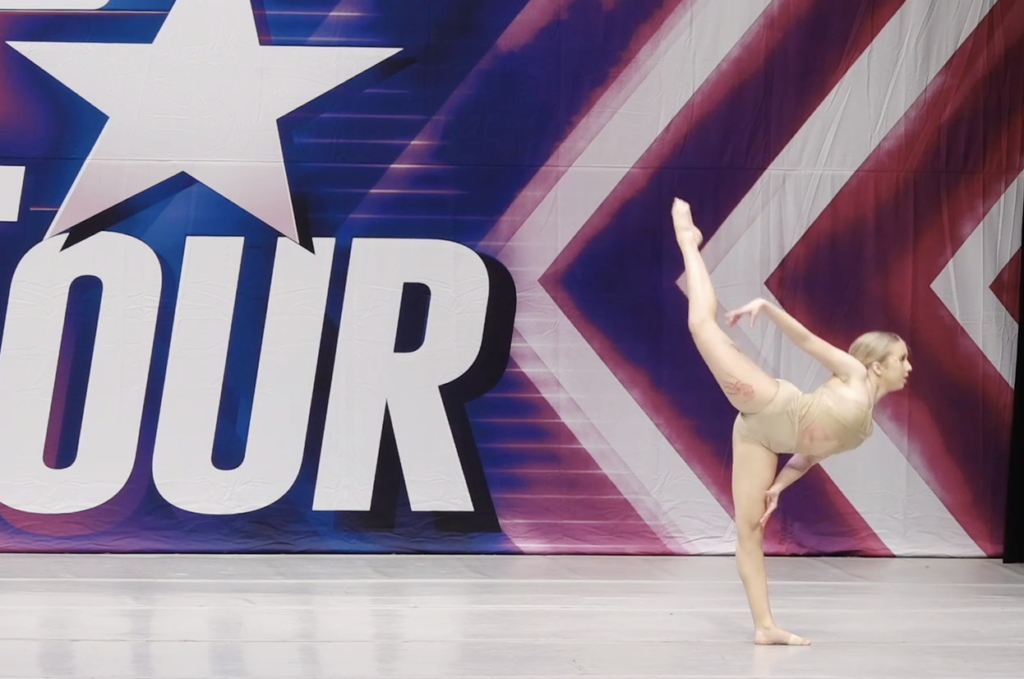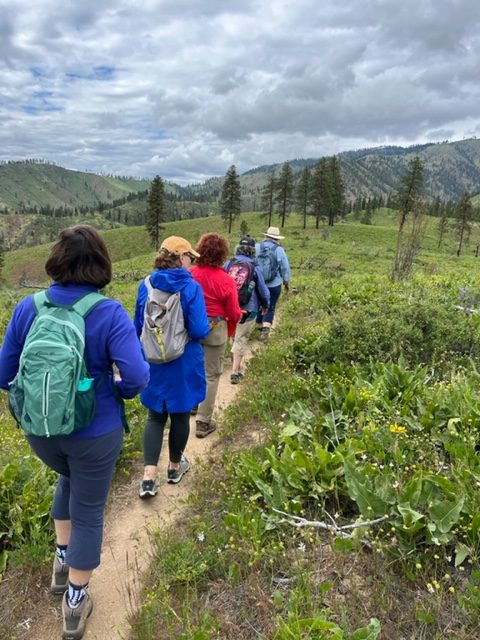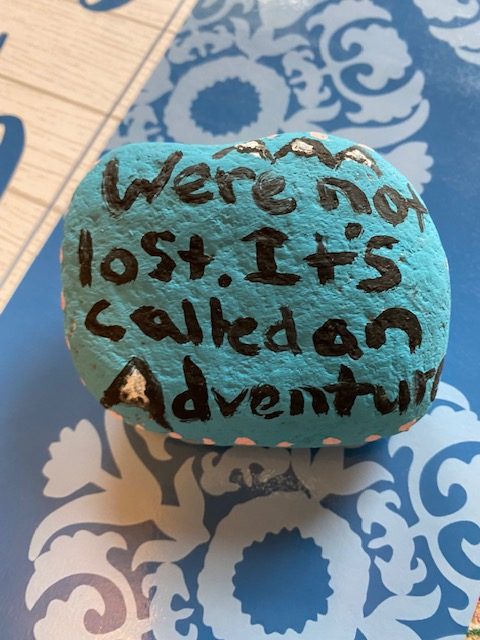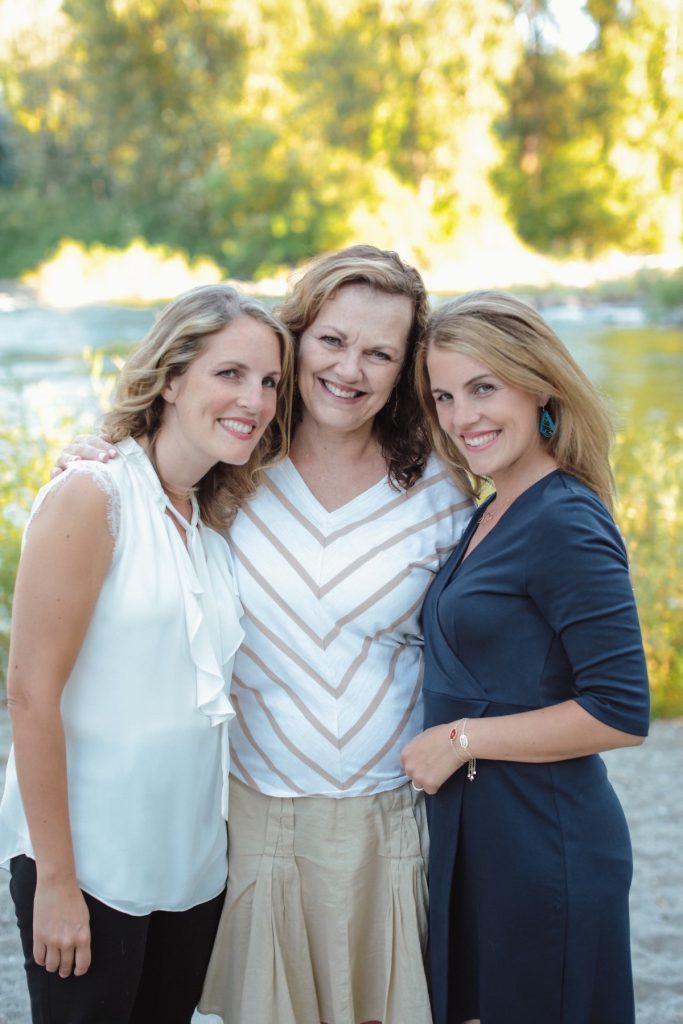Category: Uncategorized
Retiring Roja
Eight years ago, today, Roja and I graduated as a guide dog team from Guide Dogs for the Blind’s San Rafael campus. And now I am planning her retirement party for sometime in October. I hope the celebration feels playful, filled with squeaky toys and frisbees she was not allowed to have as a working dog. Perhaps we’ll sip some wine and have some cheese while cooing over sentimental photos of Roja in her younger years. She deserves at least that much.
I envision The Beatles “It’s been a hard day’s night, and I’ve been working like a dog” playing through the speakers as guests carry cucumbers and carrots to offer her, which she will accept in one full mouthful with wagging tail.
I’m hoping planning these light-hearted details will take the edge off the ache I’m feeling as our working relationship comes to a close. No doubt, she will enjoy her transition from guide to pet immensely. She turned 10 in June, and most guide dogs retire around age 9, though I had been hoping she would follow in the steps of the 14-year-old working German Shepherd I’d heard about in Canada. No such luck, eh?!?
“She’ll let you know when she’s ready to retire,” experienced handlers have advised.
Hints of her desire for the golden years have sprinkled their way into our lives over the past year or so. From her slowed pace to the way she plunks herself down in the the grass mid-walk to balking every two steps on harness, her less-than-subtle body language communicates she is eyeing that 401(k). Fortunately for the both of us, her pension consists of kibble and cucumbers.
While I am thrilled for her, I am sad for me. I am sad for our little duo.
The eight specific years we were a team marked so many milestones in my life. Multiple moves, multiple states, multiple stages of life. Most of those years were pre-pandemic, which in itself makes it feel like a different lifetime.
I so vividly remember my little girls running toward Roja and I to greet us at O’Hare airport the day after graduation, our youngest unable to pronounce her R’s, yelling “Wo-ha, Wo-ha!”, as they smothered her with hugs.
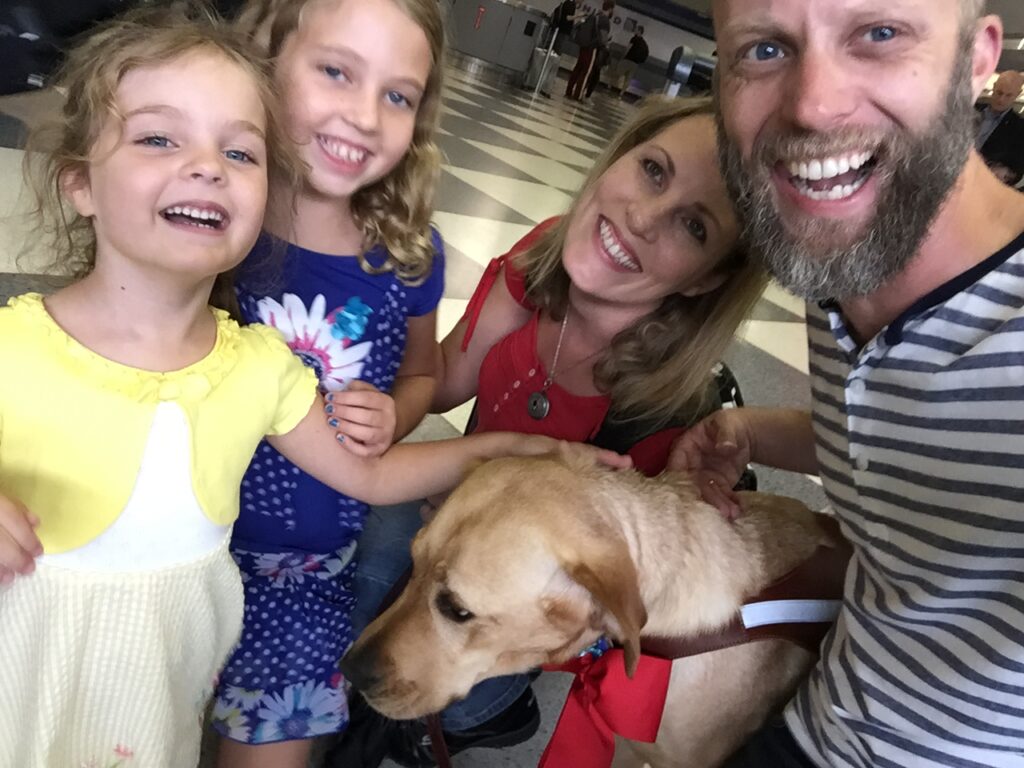
My youngest was only 5 when “Woha” came home with us and now she’s taking Algebra and wearing makeup. My oldest was 9 and her small frame was pulled down by Roja’s exuberant strength the first time she tried to walk her on leash and now she’s applying to colleges.
In many ways, Roja’s entrance into my life symbolized key steps in the acceptance process of coping with continued vision loss. She was instrumental in easing me back into the work force. She also helped increase my use of mobility aides, as I’m now more apt to grab my white cane when heading out the door than I was eight years ago.
It’s such a unique bond with another living being that I have difficulty even comparing it to anything else I’ve ever experienced. In some ways, our bond continues. The way she greets me by pressing her entire furry being into my legs for a long hug when I enter our house is the subject of much envy in our family. This connection, however, has more depth than nuzzled greetings.
To refer to her as a mere symbol or, even more crudely, a “mobility tool” feels inadequate. She is a loving presence. A beautiful being. Often, when I’m doing a guided meditation and am asked to picture someone I feel unconditional love from, I picture Roja, with that adoring stare, those wise lab eyes gazing calmly, expectantly. Yes, I know, she is mostly eye-begging for a treat. Roja’s GDB trainer would probably say that I’m personifying human feeling onto her actions and expressions, but I swear, I can feel her loving looks, and they’re not just for kibble.
Like all parts of life, change is inevitable, and we grieve even the good alchemy. I can feel this specific sadness in my body. It runs from the center of my throat down the front of my chest, and through my abdomen. It is a very specific grief, and yet it is almost generalized in its flavor, like the passage of time or the aging of a body. You come to expect it, and yet when it is upon you, you’re just not quite ready.
People ask me whether I’m getting another guide dog, and while I have filled out the application and completed my initial phone interview, I am procrastinating gathering the needed documents. Other handlers tell me your first guide dog is the hardest to get over. I know she’s not gone, and yet there’s a part of our relationship that’s ending, and it feels hard. While there are so many places she took me, and I am so grateful for the milestones we met together, there is a felt absence at the places she once guided me.
At an in-person work event last week, co-workers asked about her and I felt surprised by how much I missed having her there. As those with guides can relate, there are certain aspects that can be more stressful, such as locating a relieving area or worrying she’ll embarrass me by begging for food.
But there are many perks I missed. Like having an excuse to go outside mid-day. I, of course, missed her leading me around, though large crowds and confusing indoor spaces were never her strong suit. But honestly, I mostly just missed her calming presence laying at my feet under the table as we sat during the long day of presentations. Fortunately, working from home most of the time will still allow for those moments for the time being.
As we step into this new phase, I find solace knowing that working from home will still allow for those cherished moments of her company. While it’s a significant change, it’s also the start of a new chapter for us both – one that promises quieter days and a retirement filled with frisbees and cucumbers.
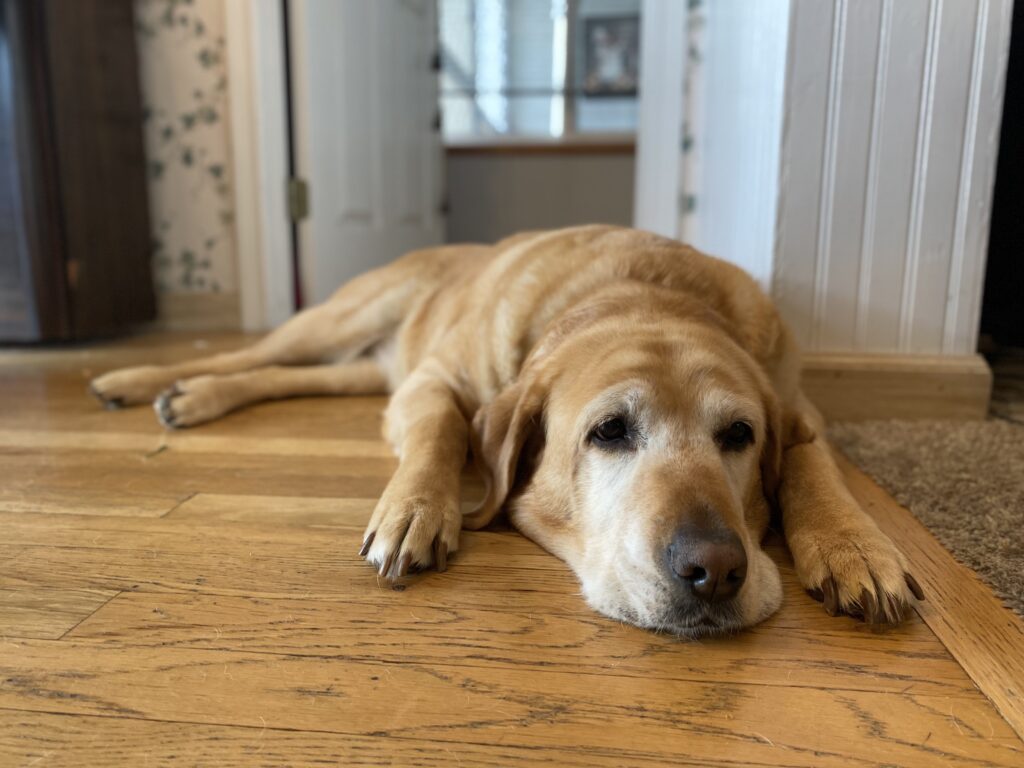
Access Intimacy 101: Why do Some People Just ‘Get It’? (Aka: Blind Dance Mom Part 2)
My daughter, dressed as Harley Quinn, comes skipping out on stage twirling her pigtail, and settles into a pose with one hand on her hip and the other raised. She grins, leaning forward, bringing one leg up. She does an arial and then twirls her way back to the center of the stage.
For those who read my last post, you know that I am privy to all of these details, thanks to Audio Describer Chanelle Carson. But what you may not know is that audio description is just one piece of access.
Many have referred to vision loss as a “social disability”, which brings up some complex feelings for me, as connection is one of my top values. There are settings in which I feel deeply connected to other human beings, and there are also certain settings that feel especially disconnective to me as a person who is visually impaired.
To unpack this further, I’ll need to reference an article written by reporter, Will Butler, as he chronicled his experiences at SXSW back in 2013.
“There are some places that blind folks just aren’t expected to be…particularly large crowds, hectic circumstances and places of general fun and enjoyment. You can feel people gawking, questioning your legitimacy and fearing your misfortune.”
When I first read Butler’s words 10 years ago, they struck a chord and have floated back into my consciousness from time to time, especially while at large events. They’ve also given me language to express why I don’t typically feel comfortable walking around with my white cane at dance competitions. I don’t bring my guide dog, Roja, due to the loud music, and I tend to link arms with my husband and then plant myself in an auditorium seat for most of the competition. Seems simple and easy, right? Not exactly. For years, I have walked away from long weekends of dance competitions feeling isolated, especially when my daughters were younger and needed “dance mom” support that I wasn’t able to give them.
I have often found myself envying the other moms, particularly the ones who bounce quickly out of their seats the minute their dancer’s song is over, rushing backstage to congratulate their dancer or to hug them when a performance hasn’t gone well. They rush with their makeup and hair bags, ready to magically accessorize and prep their dancers for the next act, and they do it all at a speed I can’t comprehend.
Meanwhile, I sit in my seat and try to muster the courage to make my way through a crowded auditorium into crowded hallways in search of a crowded bathroom, as I’ve been “holding it” for the past 10 songs, afraid I’ll miss my daughter’s routine since the estimated time for navigating to and from the ladies’ room is unpredictable. Inevitably, my stomach rumbles with the gnawing feeling of shame and mom guilt over spending so much time trying to take care of my basic needs while my daughter’s team members all seem to have moms that are flitting around at lightning speed doing helpful dance mom things backstage.
I have been backstage once in my 7 years as a dance mom, when my younger daughter, Elli, was in 2nd grade and about to take the stage for her duet. A well-meaning mom led me through the dark passageway and sat me on a stool and then disappeared into the dark void. I had no idea where Elli even was, and the music was so loud that I couldn’t use my sense of hearing to fill in the details. There was only one thing I knew for sure: I was sitting backstage like a piece of furniture while the other moms interacted and connected with their daughters and each other. I longed for just one person with whom to share Access Intimacy, but this was not even a term in my vocabulary at the time. That was just 5 years ago, and I now have multiple definitions to describe the concept.
I’ll begin with the fancy academic definition and then break it down.
“Access Intimacy refers to a mode of relation between disabled people or between disabled and non-disabled people that can be born of concerted cultivation or instantly intimated and centrally concerns the feeling of someone genuinely understanding and anticipating another’s access needs” (Desiree Valentine)
Simply put, Access Intimacy is when someone is WITH a disabled person in accessing needs as opposed to separating themselves into the role of “heroic helper”.
Jenelle and I dove into the origins of this term in previous posts, but wanted to share this additional definition as it implies that Access Intimacy can be both natural and cultivated.
I consider people with whom I share Access Inimacy people who “get me” and my vision needs without necessarily having to ask specifics. This is vulnerable and blunt for me to say, but when someone tells me they need to know exactly what my vision is like in order to help me, I automatically feel distanced from that person.
I am a curious person by nature, so I understand natural curiosity, but I can also feel when it’s laced with something else. Discomfort, maybe? Judgment? I’m not exactly sure what it is, but let’s just say it’s very obvious when my lack of vision is the only thing on someone’s mind.
When embarking on a hike with a group of friends a few years ago, for example, one friend asked, “Joy, how do you want to be treated on this hike?” Yes, she had curiosity, but the way she phrased it left me feeling confused and speechless. Fortunately, another friend with whom I have Access Intimacy quickly replied with humor. “Yeah, do you want us to throw rocks at you as you hike?”
For those I am closest with and share Access Intimacy, my visual impairment is a secondary characteristic and not something they seem to be thinking of while we’re spending time together, though they’re aware of my needs as they arise.
Fortunately, I have experienced Access Intimacy with both strangers and friends many times over the years, and certain instances have helped me further define the term.
One of these instances occurred at Lucy’s national dance competition last year.
I had been at dinner with some parents and shared about my blindness with the partner of one of the dance moms on Lucy’s team. Since she herself had disclosed a hidden disability and also has racial and sexual orientation identities that fall outside of the “dominant norm”, I immediately felt the empathy of someone who daily navigates challenges on multiple levels.
Yet I was still surprised and delighted when she turned to me after one of the dances and asked if I’d like her to accompany me to Lucy’s dressing room. To her it might have seemed like a small gesture, but to me, it allowed me to enter a space I rarely get to go. I was able to hug Lucy, congratulate her and even bring her water. It was small, but it mattered largely. On the way back to the auditorium, she thought to ask if I’d like to make a quick stop by the bathroom and then the snack bar. She helped me in a casual, effortless way, not hovering over me awkwardly or making a production out of guiding me. With laughter and lightness, she managed to transform a stressful arena into a comfortable one. And that, ladies and gents, is Access Intimacy.
Blind Dance Mom: Accessible Moments Matter
How Do You Spell Ophthalmologist?
Joy and I recently traveled to WA’s state capitol to speak at the Olympia Vision Fair, hosted by the Hope Vision Foundation. Highlights from this trip included eating a chicken pot pie the size of my head (more please!) and meeting the founder of Hope Vision Foundation, Dr. Erin Seefeldt.
Ophthalmologists often play a memorable role in our experiences of vision loss. Yet mystery seems to surround the world of ophthalmology, from the strange spelling that requires spell check EVERY time to the often silent figure behind the clunky eye testing apparatus. Meeting such a warm, personable ophthalmologist (thanks again spell check), prompted me to create a quick “Ophthalmologist Q&A with Dr. Erin Seefeldt”.
Q: What inspired you to create the Hope Vision Foundation?
A: As an ophthalmologist I see many patients with conditions causing vision loss. From my training, I knew that vision rehabilitation existed and had trained at the American Lake Blind Rehabilitation center. The resources and professionals there are amazing. Then I realized that for non-veterans the options were not as robust and there were barriers to getting rehabilitation. These were personal and system issues. It is not easy to refer patients or learn about the services in each area. We also don’t have the time built into our schedule to really talk and listen to patients about how they are adapting to vision loss. I founded hope vision foundation to create a resource for our community that allows all patients with vision loss to connect to resources.
Q: When you were in medical school, what type of training did students receive on how to communicate with patients about a diagnosis of vision loss?
A: In medical school and internship we receive training on ‘breaking bad news’ but no disease specific training. We were given techniques to use and practiced with simulated patients (actors). This was fairly new when I trained and in practice every patient is different. The better you know your patient the better you can communicate a difficult diagnosis with empathy.
Q: What do you wish more eye doctors / eye care specialists could learn about working with patients who are experiencing vision loss?
A: I wish more eye doctors could learn from patient’s with vision loss how it impacts a patient’s activities and relationships. I also think it would be helpful to train doctors about low vision devices (high and low tech) and techniques. All doctors should be given basic training on interacting with people with hearing and vision disabilities.
Q: What is one critical piece of advice you’d like to share with people who are currently adjusting to vision loss?
A: Understand your reason for vision loss and what to expect over time. Knowledge is power and often not knowing can lead to worrying more and imagining the worst.
Readers: What other questions do you have for Dr. Seefeldt?![]() We can include your questions in a future Ophthalmologist Q&A
We can include your questions in a future Ophthalmologist Q&A
The Best Description of RP We’ve Ever Seen (In Honor of Blindness Awareness Month this October)
Hello DoubleVision friends. We typically try to post an informative piece about Retinitis Pigmentosa and/or blindness during the month of October in honor of Blindness Awareness Month. Our good friend and fellow RP-er, Keith, recently shared this New York Times video about RP, and it’s honestly the best portrayal we’ve ever seen, and we love the visual simulation of what people with RP tend to see. We’d love to hear your thoughts on the video as well.
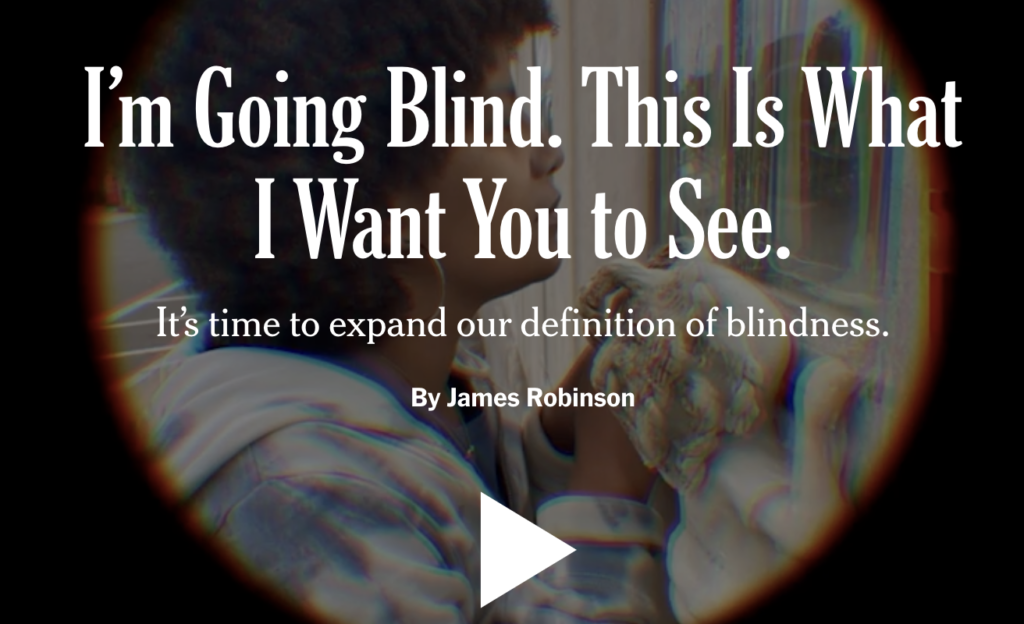
The Teacher Becomes the Student: 3 Unexpected Lessons Learned in Summer School

Picture this: identical 7-year-old twin sisters racing into their playroom after swim lessons, brown curly hair still dripping wet from the Centennial beach. Damp beach towels sprawl carelessly across the floor (sorry dad), as mirror images thoughtfully arrange dolls and stuffed animals into “swim lesson groups” in order to “teach” their “students” how to swim. This was our daily summer routine, and we REALLY got into it, demonstrating the back stroke for bugs bunny (Bugsy) and ensuring Raggedy Ann and Andy kept their WHOLE faces in the water while floating. Teaching what we had just learned delighted us
Teaching may just be in our blood, as both our parents and many aunts/uncles/cousins were teachers at various points in their careers. Or perhaps we were vaguely aware that showing our cabbage patch kids how to do frog leg kicks actually strengthened our own swimming abilities.
Here we are, several decades later, teaching in different capacities the skills we ourselves are still learning. This summer, I contracted with WA State Department of Services for the Blind (DSB) Youth Services to provide weekly mental health workshops to teens. It was fun designing the curriculum with many of the Social Emotional Learning strategies I learned in my Breathe for Change certification program, along with mental health skills from my work as a clinical social worker. Once again, I found myself learning as I was teaching because the students were engaging and intuitive about their mental health.
While I gravitated towards evidenced-based approaches to improving mental health, my students offered me fresh perspectives merely by being themselves. Here are 3 Lessons I learned this summer that I will add to my personal mental health toolkit.
1. Laughter is Key: I spent the first few weeks with the students focusing on distress tolerance skills such as breathing techniques and mindful movement exercises. I asked students to practice these skills between weekly workshops and invited them to share what they learned with the group. At the final workshop, one student shared that breathing techniques sometimes helped relieve anxiety, but that she noticed the biggest shift when another student told her a funny story in the midst of a rough day. Even as she shared this, she began to giggle, which felt contagious in the best way. Laugh more, feel better. It’s simple and I need more of that in my daily life.
2. Sometimes It’s not WHAT you say, but HOW you say it: One of my favorite moments from the summer workshops was when we were working on creating mantras. A mantra is a word or short phrase that can be used to motivate, grow self-awareness, and encourage perseverance. Neuroscience teaches us that the more we repeat and practice the exact same phrase, the more likely it is to become an automatic thought and belief. I gave students examples of mantras such as “Just keep breathing” or “This moment will pass, and I am strong”. One student asked if he could say his mantra with an Italian accent. I have been teaching the art of mantra-making for quite some time, and NO ONE had ever asked me this. I enthusiastically encouraged him to share his mantra with his Italian accent. Now I wish this was a Vlog instead of a Blog so you could hear him saying “I am doing the best I can!” with the BEST Italian accent I have heard since my trip to Italy in 2009. I have adopted this student’s mantra, Italian-accent and all into my toolkit and use it whenever I am struggling.
3. It’s Okay to “Pass”: Maintaining a “trauma-informed” approach is critical to working with human beings and was a primary focus of my education at University of Washington. One key factor to trauma-informed approaches is offering choice. While my goal is to engage all students and encourage participation, I also offer students the choice to “pass” during sharing time and activities. I observed myself feeling slightly irritated when the same few students were choosing “pass” week after week. “How are they supposed to learn anything if they don’t participate?!” I thought to myself a few times during week 3 and 4. I allowed myself to get curious about my feelings of frustration and with this curiosity came a deeper knowing – these students are learning something very critical: They have agency. Perhaps they have rarely experienced the empowerment that stems from choice. I reflected on all the areas of my life where I have the choice to say “pass” and perhaps out of obligation/guilt/pressure, I don’t choose this enough. And just this week, I was asked to volunteer for yet another committee that I really don’t have the bandwidth for. Without hesitation, I replied “Pass” and instead of a wave of guilt sweeping over me, I felt a wave of relief and empowerment.
When we take time to reflect on what the students in our lives are teaching us, the lessons tend to sink in more deeply. Who are the students in your life? What are they teaching you?
A New Season for Doublevisonblog

It’s hard to believe, but we’ve been sharing stories on Doublevisonblog for 11 years now! Due to life, some years included more sharing than others. But every year, no matter the amount of posts, we’ve grown from processing our stories aloud and connecting with readers. As a result, we’ve met some of our closest friends, chatted on podcasts, been recruited for reality tv shows (which, in retrospect, thank God did not pan out), met with families who have children with RP and maiden-voyaged retreats with the amazing Daring Sisters. Like life, Doublevisionblog has ebbed and flowed through various seasons, and as we reflect on the past 10 years, there is a sense we are on the precipice of a new season.
What does that mean?
We’re not exactly sure, but here’s one idea: Extending our support beyond blog posts to some small groups of connection for emotional support for people with vision loss and their families. We’ve created a short survey to gauge interest in these groups. Please click here to complete this survey, and if for any reason you are unable to fill this out, you may email mail@doublevisionblog.com.
And now, a quick story from Joy:
Go Joyful: Let’s Work Our Bodies, Minds and Spirits

I did something completely out of my comfort zone yesterday, and I’m hoping many of you will benefit from it.
I recorded “Go Joyful SEL Workout”
What is that?
Well, it is basically a 30ish-minute workout that takes listeners through a progression of pop songs overlayed with some insights to move our minds and bodies through the emotional highs and lows of being in a body. I’ve referred to my daily “Go Joyful” routine in recent posts, and it is basically like your morning cup of coffee. Or in my case, my morning cup of warm lemon water. It’s funny how an action that you spontaneously begin on a random day can morph into a daily habit that your well being depends upon.
It all started the summer of 2020, while I was staying with my parents when we were between houses, and the world was very much shut down. My mom came home one day with this rickety old elliptical that she had bought from a garage sale for $50 and placed it on the back patio. I created a playlist of songs that make me feel happy, which resulted in a lot of Taylor Swift songs. As I listened to the songs, I noticed they each had something to teach me, and over time, I began arranging them in an order that allowed me to process some challenging storylines and emotions that were causing me a lot of anxiety.
While the playlist of songs is something I listen to with earbuds, the internal dialogue has always just been, well, very internal, and definitely not anything I ever imagined sharing aloud with others. But then a couple months ago, I was in a silly mood and pretended I was teaching a workout class and realized I have a lot to say. It was as if all my years of studying growth and emotions through books, podcasts and self reflections were pouring into the workout.
I started wishing I had students I could teach, especially those with disabilities such as vision loss. And then I turned my head to the right side of the garage and remembered my eliptical is situated directly next to my husband’s recording studio. “Hey babe,” I said, “how hard would it be to record an audio workout that I could share with our Doublevisionblog community?”
“Piece of cake,” he said.
Actually, that’s what I wanted him to say. Instead, he launched into this two-month long debate about whether I could legally post anything with copyrighted music and presented me with several hundred options on the various ways to record such an audio workout. In the end, I sat down yesterday on a fuzzy yellow chair and spoke words into a very professional-looking microphone while wearing large headphones with crystal-clear sounds of Taylor Swift and crew. Thus was born “Go Joyful SEL Workout”.
Due to copyrights, this isn’t something I will sell or even post. However, I can share the link via email with anyone who would like to give the workout a try. Simply add your email address to our main list here. If you already subscribe to Doublevisionblog, you can send your name and email address to mail@doublevisionblog.com and title your email “Go Joyful SEL Workout”.
I have also commissioned Jenelle to create a yoga cool-down that can be done after the workout or anytime you’re in the mood for some calming movement. So once Jenelle records the cooldown, we will email both the workout and cool-down links to anyone from our mailing list who would like to listen. We only ask that you do not post or share the link. If you have a friend or family member who you think would benefit from this, you can give them our site address or email in order to request the link personally.
And finally, our question for you…
Is there anything you need? Whether it’s specific words of encouragement, posts on certain topics and/or resources, we’d love to hear from you. Feel free to leave comments below or to email mail@doublevisionblog.com.
Hindsight is 20/20: 5 Tips for Parenting Children Who are Blind or Visually Impaired
Getting Lost: What My Mama Taught Me
Dedication: As Mother’s Day approaches, I’d like to dedicate this post to our beautiful mom, Judy. While many people wait to eulogize their loved ones after they’ve passed from this earth, I like the idea of letting people know the impact they’ve made while they’re very much alive and well! And what better way to do this than through story? I love you, mom! Happy Mother’s Day!
I have been lost many times in my life. The first time I can remember feeling truly lost, that is to say to the point of trepidation, I was in 6th grade wandering around the historic district of my hometown in the middle of the night.
Jenelle and I were at a slumber party, and one of the girls had the brilliant idea to sneak out to go pranking, which basically amounted to a gaggle of girls parading across the nearby college campus, each armed with a roll of toilet paper. We never actually had the chance to T.P any houses, as 10 squealing middle school girls carrying rolls of toilet paper through a well-lit college campus was as sneaky as a teenager sounding a loud alarm as they climb out of the window.
“What do we have here?” A student security guard asked as we all began to run, dispersing in all directions. “Toilet papering…..how cute!” The guard roared sarcastically.
I ran and panted and ran some more until I knew was safely away from both the campus and the guard. It was only then that I realized I was all alone. And, as if on cue for the moment, it began to rain.
Having night blindness, I couldn’t decipher where in the neighborhood I was. I searched frantically for any kind of recognizable landmark in this neighbhorhood that I had grown up in and walked regularly to school in, but the evening sky had transformed it into an unrecognizable world.
Since there was no such thing as a cell phone in 1989, all I could do was walk up and down the streets, tears streaming down my face with the rain, thinking about how very stupid I was to have not kept up with the other girls and how worried I was that my twin, who had also been with us, may also be out there, lost. I wandered the streets for what felt like hours, and slowly the initial terror of realizing I was lost subsided, and I honestly didn’t feel as afraid as one would think.
Reflecting on the scene of my young self wandering the darkness alone at night, I recall a underlying assurance that I wouldn’t be lost forever.
I credit my mom for this, as she raised me with a very counter-cultural view of getting lost. If we were driving somewhere and she didn’t know where we were, which seemed to happen quite often in the years before Google Maps, she would always say, “We’re on an adventure!” If my mom said this when we were running late, which also happened quite a lot with 4 of us girls to wrangle, this phrased irritated me. I didn’t want to be on an adventure. I wanted to be at my destination. On time.
Fast forward to April 2022, and mom’s words pop into my head as I wander through wooded paths with my guide dog, Roja, trying to find my way to an Earth Day fair where my husband and daughter are waiting for me, and I am very much on an adventure.
I am proud of Roja for guiding me through busy streets and onto the pathways, but I have just received a call from my husband, who has been watching my little GPS dot on his phone, telling me I should have turned left at the bridge. This would be helpful information except that I remember crossing two bridges. I am fairly certain they were two different bridges, not the same bridge twice. But what if I was just circling?
I reverse directions and tell Roja to “hop up”, the command given when a dog is distracted, and since there are all kinds of new, delicious smells in the woods, she is very distracted. We’ve been a team long enough, however that she tunes in when she senses I’m distressed or in a hurry, so she becomes highly focused and leads me with stubborn certainty to the left, and it’s only as the tip of my left foot is touching the surface of the bridge that I realize she has led us to the exact right spot. I am tempted to shout to anyone within ear shot “Look what my perfect guide dog just did!”
But as we exit the bridge she leads me with just as much certainty to a nearby pole and begins licking it. “Hop up, girl!” I redirect, and we are on course again.
At least I think we are headed in the right direction, but I am not certain. As the path winds, I think about how often in my life I feel uncertain. Did I choose the right career path? Am I parenting my daughters the right way? Should I have avocado toast or steel cut oats for breakfast?
I ponder these questions and inhale spring air. I think about a good friend who has told me she feels lost in life, and it sinks in how often we as humans encounter this lonely feeling.
I look down at my gorgeous yellow lab and I think about all of the many pathways she has guided me on, and I feel like dancing. I think about how I’ll probably need to retire her in the next year, and I feel like weeping. I think about my peacemaker mom who taught me to take risks and trust the journey. I think about how very present she is in my life and how, if nature takes its typical course of parents passing before children, I won’t always have her physically with me. The thought shortens my breath, and I have to remind myself to inhale and exhale. And then I hear something from a distance. I realize it is music from the Earth Day festival and a sure sign that I’m on the right path. It makes me think about how we all need little signs from time to time to remind us we are on the right path, just like the shouts of my 6th grade friends as their dramatic search party discovered me wandering the streets back in 1989. I think about how my mom has given me those reminders throughout my life and about how I can pass those reminders on to others.
So if you’re feeling a little off course today or this week or maybe for quite awhile, know that you are not lost. You are merely on a grand adventure called life, and there are no wrong turns.

